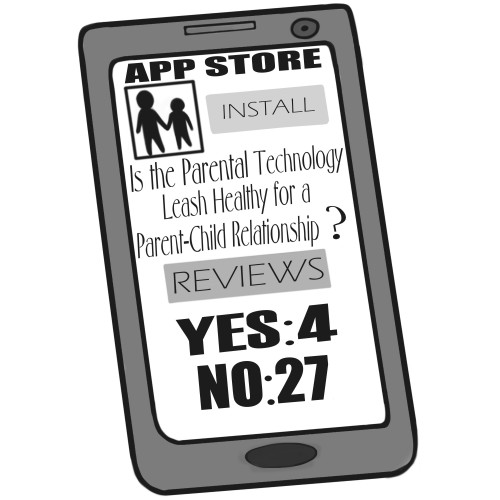Staff Ed: Is the Parental ‘Technology Leash’ Healthy for a Parent-Child Relationship?
In this day and age, it is very uncommon to find a teenager without a cellphone. In fact, according to a 2013 Pew Research study, 78 percent of America’s teenage population owns a cellular device. However, this poses a crucial question: how can parents protect their children from the dangers of the technological world? New apps such as Ignore No More locks a child’s phone if a parent’s call is missed and only reactivates if the parent is called back. To a larger extreme, the Catch Me If You Can and Protect Me If You Can apps enable a parent to see every text, phone call, picture, video and contact on their child’s phone. The parent can have a record of the child’s every location and be alerted if their phone travels outside certain boundaries. On such a widespread scale, parents can virtually monitor, track and oversee their child’s every action without them ever knowing. There is no doubt a growing market of parents wanting to digitally keep track of their children’s moves and whereabouts, and though it is understandable for a parent to protect one’s child, there is a fine line between protecting and invading.
The technology leash parents enforce is meant to protect children and keep them safe, as well as monitor their whereabouts, friends and activities. While some teens may not necessarily mind if their parents were to utilize the many apps at their disposal, it is the concept behind being monitored that brings about an ethical issue. A cell phone nowadays can contain many snippets of private information, information that gets violated when these apps monitor every move one makes on the phone. Of course, one may argue that parents should be privy to such information, especially when it concerns the safety of their child. However, relying on these apps alone creates a lack of trust and communication, which is detrimental to the parent-child relationship. Parents may be seen as “snooping” or going behind their child’s back. The child will most likely react with resentment and for parent-child relationships that already lack trust, the apps prevent any possible improvement.
Ultimately, a healthy parent-child relationship revolves around a mutual sense of trust. A parent breaches this trust if they uphold a strict and unfair leash on their child. Similarly, a child can also violate a parent’s faith if they repeatedly commit irresponsible and ignorant actions. Open communication is essentially the best way to address parental worries and resolve family conflicts. Strictly monitoring what a child does on their phone, regardless of the reason, will primarily decrease the chances for a trusting relationship.
